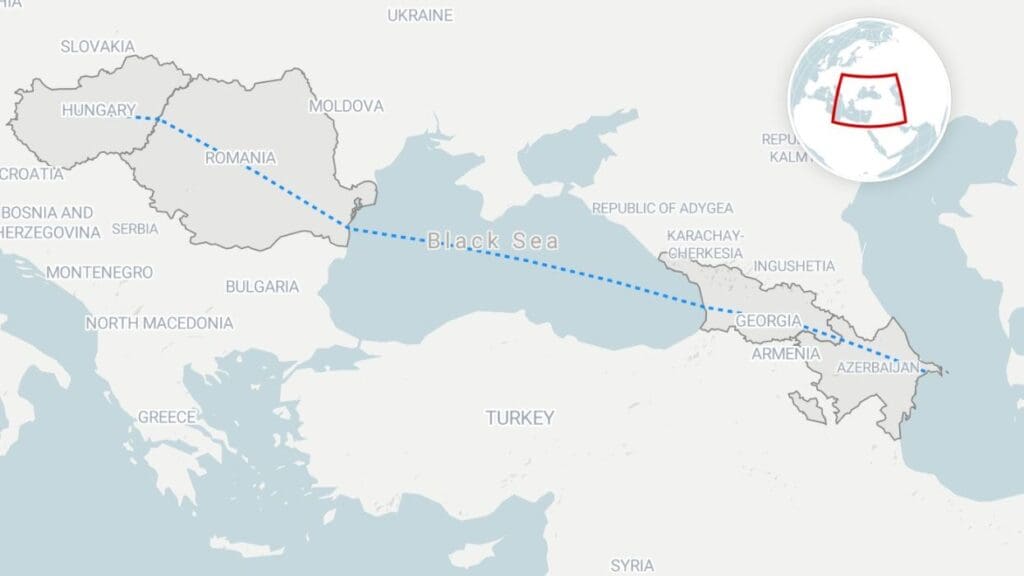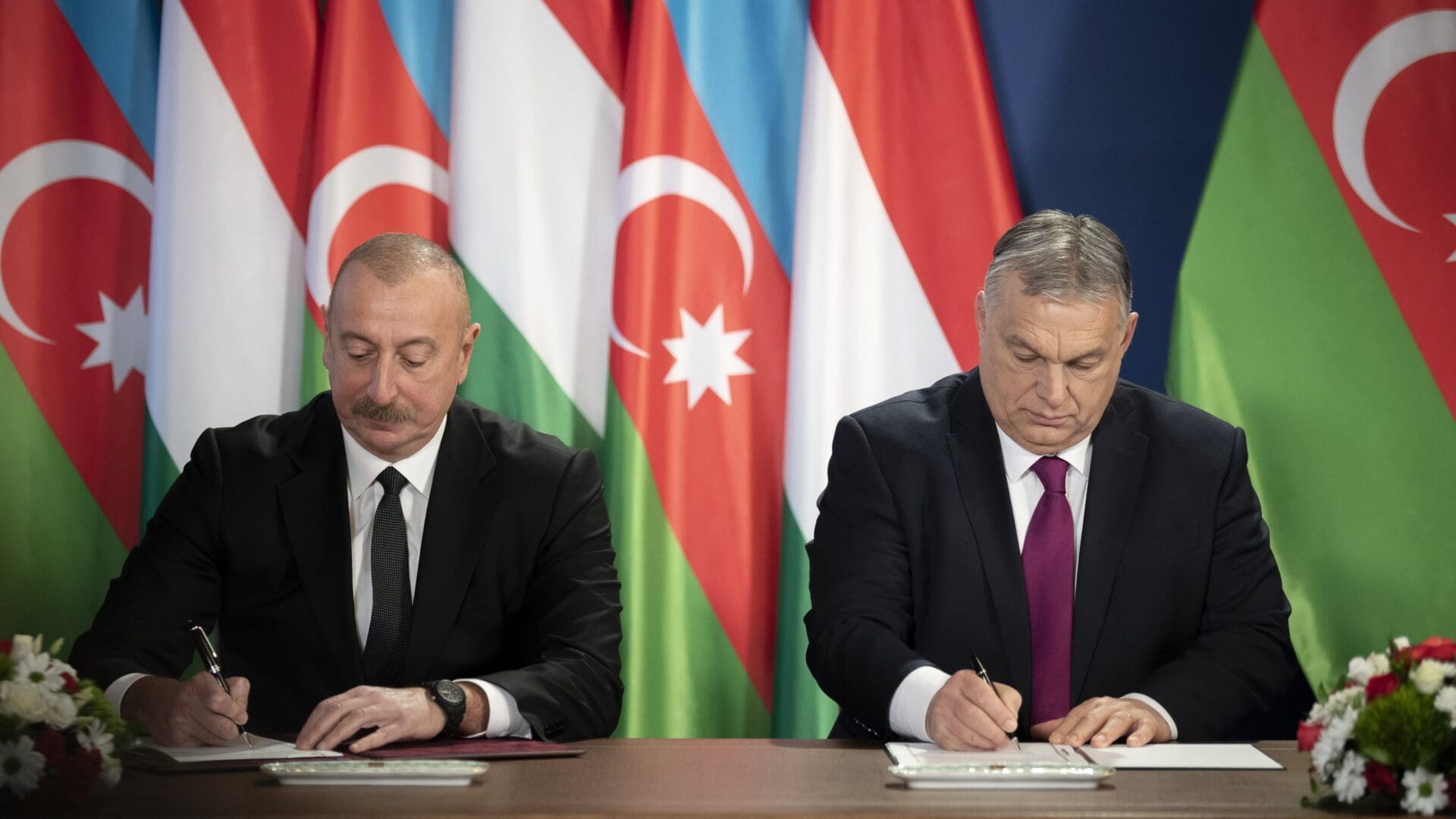Since the beginning of Ukraine’s invasion, energy prices have skyrocketed in Europe, putting a strain on households. The energy insecurity on the continent is to a large extent the result of the sanctions levied on Russia, which restrict energy imports. To address the energy shortage, it is key to work towards diversifying the EU’s energy sources. Hungary has been making important efforts in that direction, and as part of its Opening to the East policy, has turned towards Azerbaijan to diversify its energy imports and ensure a smooth and reliable energy supply for households.
Earlier this week Azeri President Ilham Aliyev visited Hungary to conclude important agreements between the two countries. One of the highlights of President Aliyev’s visit was the signing of a joint declaration with Viktor Orbán on enhanced strategic partnership between Azerbaijan and Hungary. With its rapidly growing energy exports and developing infrastructure connecting it to Europe, Azerbaijan is set to play a strategically important role in guaranteeing the energy security of the continent. The Azerbaijani President vowed that his country would be a trustworthy and reliable energy supplier of Europe for the next 100 years to come. Else than the strategic partnership declaration, the agreements signed this week between Baku and Budapest extend to agriculture, space exploration and the tackling of migration.
#Azerbaijan is our secret weapon for #diversification in the field of energy. Luckily, President Aliyev and I have been working on strengthening the cooperation between 🇦🇿 and 🇭🇺 for over a decade. It was great to welcome you in Hungary, @presidentaz ! pic.twitter.com/Gu7RzkwIec
— Orbán Viktor (@PM_ViktorOrban) January 30, 2023
According to the energy agreement, natural gas imports from Azerbaijan to Europe will be doubled by 2027, and electricity will also be supplied to Europe. Currently, approximately 3-4 per cent of the EU’s monthly energy use is provided with energy from Azerbaijan. In 2021, 8 billion cubic metres of Azeri gas arrived in the EU via the Trans-Adriatic pipeline. Under the new agreement, Azeri exports are expected to rise to 20 billion cubic meters of gas annually over the next four years, as we have reported earlier.
To accomplish the goals of the strategic partnership, a major infrastructural development is needed. The construction of a submarine transmission cable that will allow Hungary to import green electricity from Azerbaijan through Georgia and Romania was decided in a quadrilateral agreement last December. The cable is expected to be the world’s longest undersea infrastructure stretching over 1195 kilometres from the Caucasus to Hungary, supplying not only Budapest but other neighbouring countries too with green energy.

To secure the required funds for the construction, Hungary, Bulgaria, Romania and Slovakia have turned to the European Commission asking it to treat the construction as a priority project that contributes to the region’s energy security.
President Aliyev met not only the Prime Minister Viktor Orbán but also with the Hungarian President Katalin Novák, whom he invited for an official visit to Baku.








